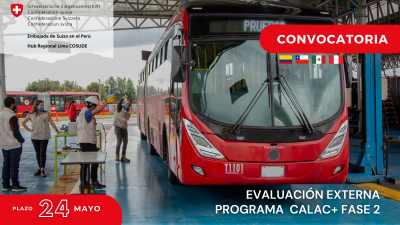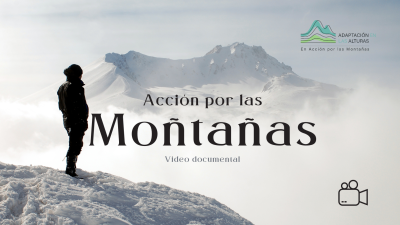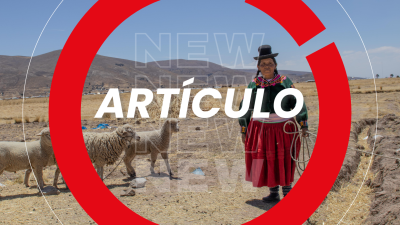For International Mountain Day on 11 December 2020, leaders and experts met to share their knowledge, experience and reflections on climate change policies and adaptation strategies in the Andes.

On 9 December 2020, for International Mountain Day, over forty participants – including decision-makers, international experts and civil society leaders – joined the on-line discussion forum “Climate Change (CC) Policies and Adaptation Strategies in the Andes: a multi-sector view from the mountains”.
The event was organised by CONDESAN as part of a regional synthesis process to update the current regulatory and policy framework for climate change in the Andean countries, which is supported by the Andean Forests Programme and the Highland Adaptation Programme, both initiatives supported technically and financially by the Global Climate Change Programme of Swiss Cooperation (SDC).
In the first part of the event, Emilie Dupuits, CONDESAN consultant, presented an analysis of the governance models of existing regional platforms for the sustainable development of mountain socio-ecosystems at the international level.
Ms. Dupuits highlighted key lessons from regional integration experiences in the world’s mountain regions, regarding the levels of formality of the platforms, the role of civil society and scientific bodies in their sustainability, the experiences of liaison with sub-national levels of government and the inclusion of the Ecosystem-based Adaptation (EbA) approach.
She went on to present the progress of the regional study on climate change adaptation policies in the Andes which she is conducting. She commented on the results of the survey of decision-makers and experts in the region in November 2020, pointing out that it had identified a series of key issues, highlighting the need for greater inter-institutional and inter-sector coordination; greater institutionalisation of local knowledge and community participation; greater integration and explicit recognition of mountains in CC policies in the region; and the need to strengthen long-term socio-environmental monitoring mechanisms.
This was followed by a plenary panel discussion. The first speaker was Karina Salinas, National Director of Adaptation to Climate Change at Ecuador’s Ministry of Environment and Water. She described the status of the integration of Andean socio-ecosystems in climate change policies in the region and mentioned the need to adopt a cross-cutting approach to the inclusion of EbA mechanisms in national policies, and said: “There is growing interest in the international community in the role of the paramos in climate change adaptation“.
María Teresa Becerra, an expert consultant on environmental and biodiversity issues, explained the challenges for inter-sector coordination on adaptation: designing policy instruments to facilitate it, strengthening the integration of the sustainable landscapes approach, implementing market incentives and providing integrated technical assistance at the local level. She also explained that it is necessary to “improve access to knowledge of the impacts of CC on production systems”.
Finally, Tito Villarroel, project coordinator at the AGRECOL Andes Foundation in Bolivia, discussed the importance of community participation from his experience in formulating the Municipal Law for the protection of water catchment areas in the municipality of Totora, Cochabamba province.
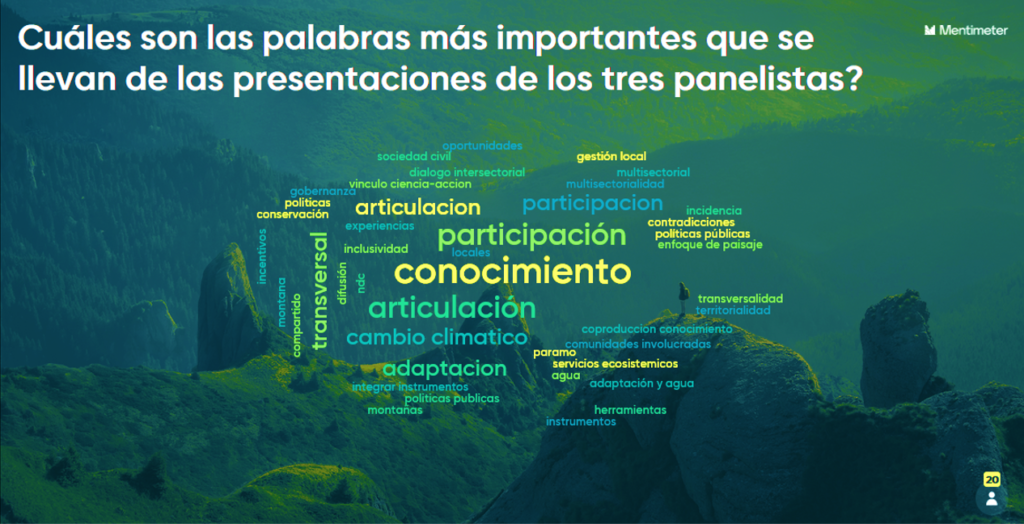
The event included three thematic groups, briefly summarised here.
Group 1 “Mountains as a cross-cutting issue in climate change policies in the region”
The main weaknesses identified were that mountains are not seen to be a priority ecosystem in the fight against CC, their socio-ecological dimension is not recognised, mountain focal points in the region are not consolidated and there is a need to build up scientific evidence. The main opportunities proposed were the recent approval of the Andean Environmental Charter to make visible the role of mountain socio-ecosystems in fulfilling the NDCs, and stronger alliances with universities and think tanks to identify knowledge gaps.
Group 2 “Challenges for inter-sector liaison for climate change adaptation”
The main weaknesses were identified as the lack of tools for coordination between sector policies and between science and politics due to the lack of regulatory frameworks. The opportunities highlighted were the channels for dialogue established at sub-national level and funding for inter-sector projects, and the systematisation of success stories, with the support of academia. Finally, one of the main priorities proposed is to achieve an integrated and adaptive approach both in national planning and in rural extension systems at the territorial level.
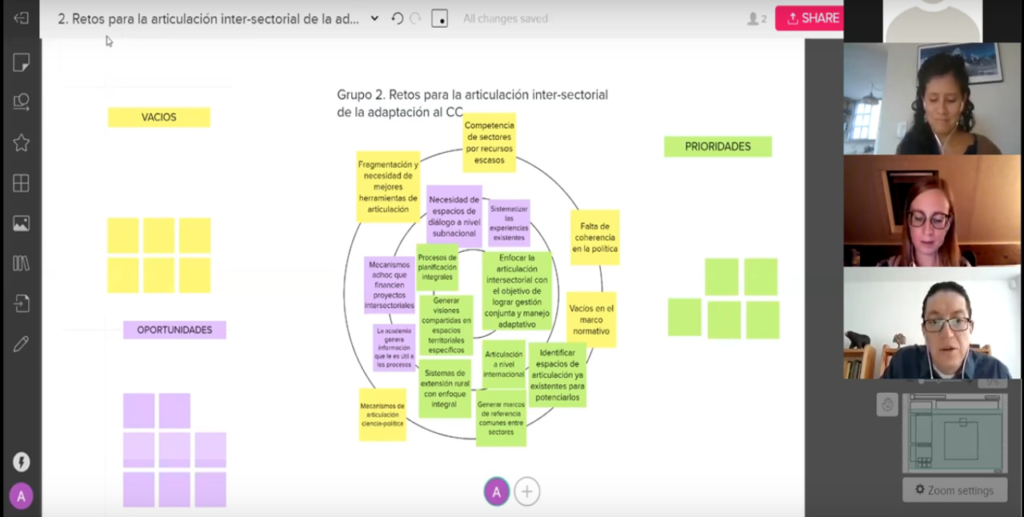
Group 3 “Opportunities and obstacles to community participation and the institutionalisation of local knowledge”
This group identified the lack of effectiveness and continuity of community participation as a major problem. The opportunities and priorities proposed included the need for scientific evidence and for technical, scientific and local knowledge to be produced together, and for national guidelines to be developed on conducting participatory processes that are not imposed but shared.
The event concluded with a commitment by the participants to continue pooling efforts for regional cooperation on CC adaptation. The main objective of the regional study which CONDESAN is conducting is to consolidate this roadmap for action. It is expected to be ready by April 2021.

You can download the Report of the Conference on Climate Change Policies and Adaptation Strategies in the Andes: a multi-sector view from the mountains
About Andean Forests (Bosques Andinos)
The Andean Forests Programme is implemented in the Andean countries, and is part of the Global Programme on Climate Change and Environment of Swiss Cooperation (SDC). It is facilitated by the HELVETAS Peru – CONDESAN consortium.
For further information:
Web Andean Forests
Fact sheet Andean Forests
Andean Forests Platform


